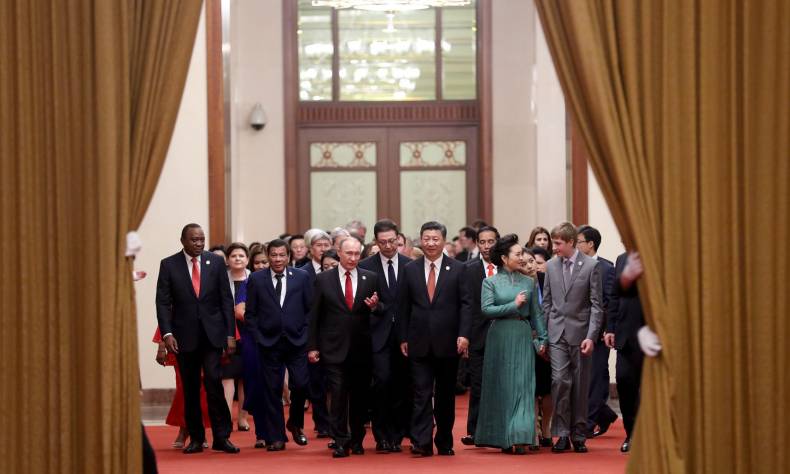
China’s Major Country Diplomacy in the New Era
Premier Li Keqiang’s government work report 2018 documented the significant achievements of China’s diplomacy in the past five years, and summarized its distinctive features for the new era.
By Xu Xiujun
Premier Li Keqiang’s government work report 2018 documented the significant achievements of China’s diplomacy in the past five years, and summarized its distinctive features for the new era.
Over the past five years the Central Committee of the Communist Party of China with Comrade Xi Jinping at its core has grasped the strategic changes in the international and home situation, and in China’s current strengths. The distinctive features of China’s major country diplomacy form an all direction and multilateral framework that creates an amicable external environment for China’s future development.
China Applies Head-of-State Diplomacy as Befits a Major Country
Head-of-state diplomacy is the highest level in China’s diplomatic activity, and plays a crucial role.
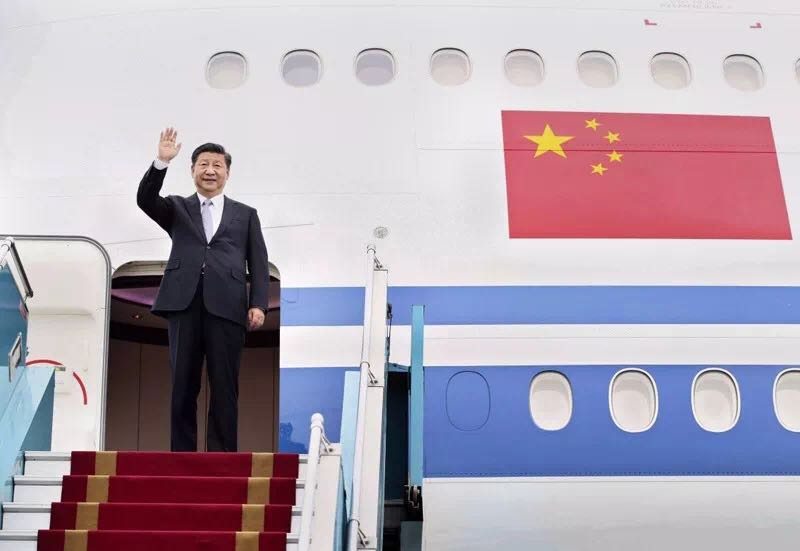
As the main architect of the theory, President Xi has made friends with foreign leaders from many countries with different social systems and cultural backgrounds, thereby expanding China’s “circle of friends”.
Host Diplomacy Manifests China’s Major Country Status
Diplomatic events have long been hosted in western countries, allowing the voices of major western countries to dominate the international debate, set the international agenda, and make the rules of international activities.
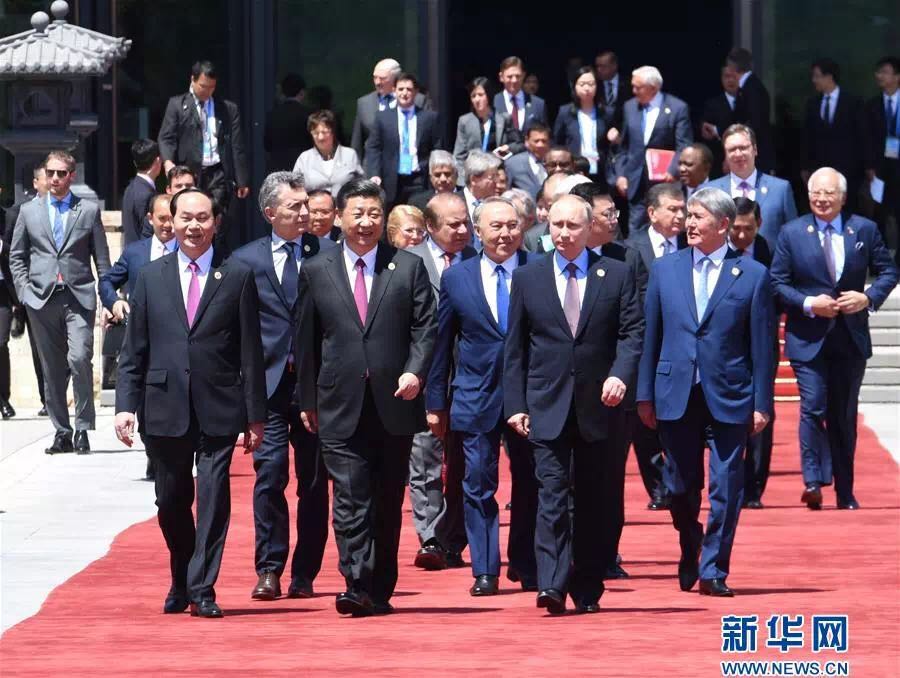
Since the 18th National Congress of the CPC, China has successfully hosted several diplomatic events, including the 4th Summit of the Conference on Interaction and Confidence-Building Measures in Asia (CICA), the 22nd Asia-Pacific Economic Cooperation (APEC) informal leaders’ meeting, the commemoration of the 70th Anniversary of the Victory of the Chinese People’s War of Resistance Against Japanese Aggression and victory in World War II, the 11th G20 Summit, the 1st Belt and Road Forum for International Cooperation, and the 9th BRICS Summit. Hosting international events in China is one of the features of Chinese diplomacy for the new era.
The frequency and quality of these events also manifest China’s comprehensive strength and international status, laying a solid foundation for amplifying China’s voice and extending China’s influence on the international stage.
Diplomacy for a New Era Drives a New Model of International Relations
China’s distinctive major country diplomacy aims to promote a new model of international relations and to build a global community of shared future.
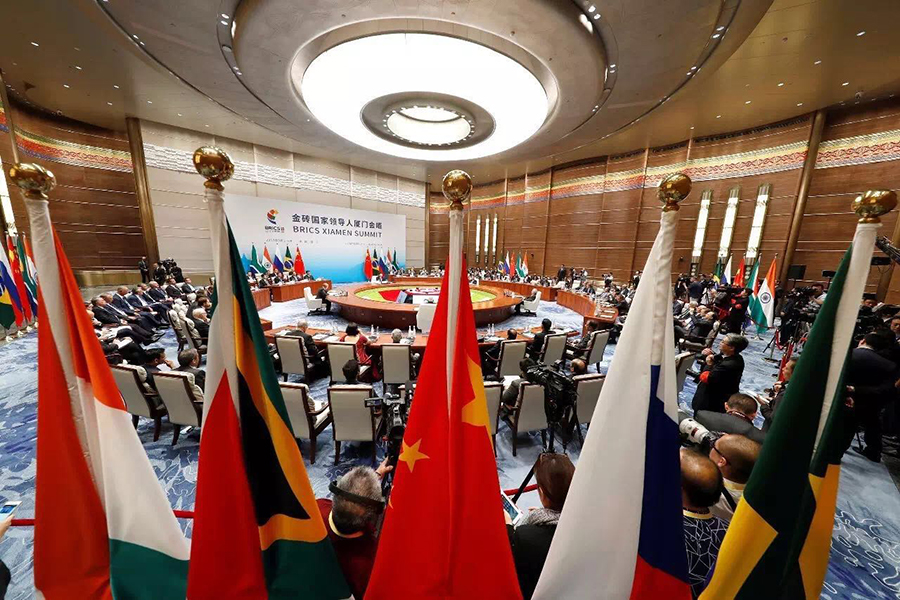
To achieve these goals, since the 18th National Congress China has been advocating and pursuing global partnership. At the Shanghai Cooperation Organization (SCO) China has promoted the “Shanghai Spirit”, which features mutual trust, mutual benefit, equality, consultation, respect for cultural diversity, and pursuit of common development. To facilitate the BRICS cooperation mechanism, it has emphasized the importance of cooperation and partnership featuring openness, inclusiveness, cooperation and mutual benefits, and it has committed to the global governance idea of achieving shared growth through discussion and collaboration in dealing with global issues.
These new ideas embody the essence of China’s traditional culture and its contemporary wisdom.
China’s Solutions Demonstrate the Role of a Major Country
Over the past five years, China has proposed a series of significant solutions to international and regional issues, demonstrating the role China now plays in promoting global development and upholding world peace.
President Xi proposed the Belt and Road Initiative in 2013. To date, more than 100 countries and international organizations have joined the initiative, and it has been included in vital decisions of the UN general assembly and the UN security council.
Since the Belt and Road was first proposed, fruitful results have been achieved in the frequent and in-depth communication of policies between China and other participants, in infrastructural connectivity, trade flow increase, financial investment expansion, and the people-to-people exchanges.
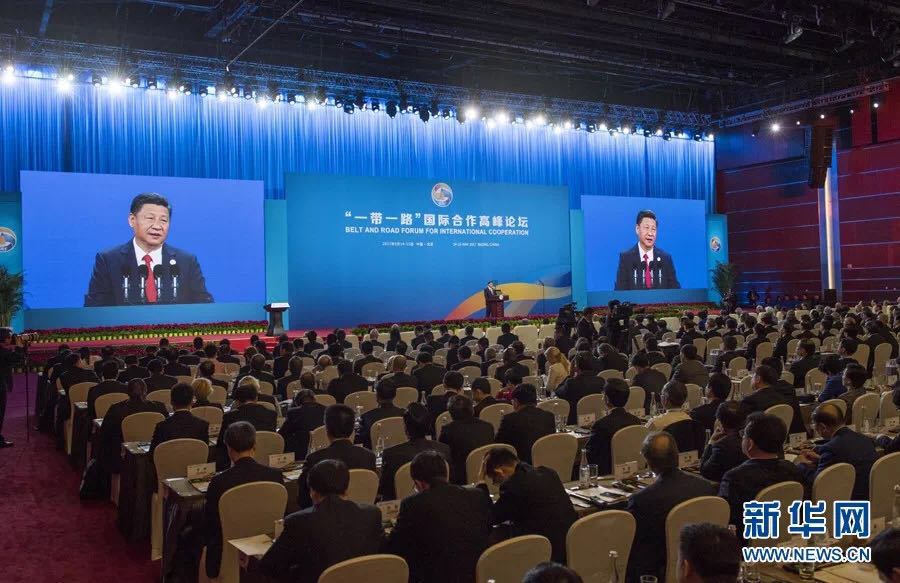
As a responsible major country, China has also provided responsible and constructive ideas and solutions to international and regional hot issues, for upholding world peace.
These solutions represent China’s significant contribution to world peace and have won widespread recognition and approval.
2018 is the first year to see the full implementation of the spirit of the 19th National Congress of the CPC. With its new and distinctive major country diplomacy, China will now embark on a new journey.
This year, China will host the Boao Forum for Asia (BFA) Annual Conference, the Shanghai Cooperation Organization Summit, the China-Africa Cooperation Forum Summit, and the China International Import Expo. President Xi will also attend a series of significant diplomatic events including the BRICS Summit, the APEC informal leaders’ meeting, and the G20 Summit. Head-of-state diplomacy will open up a brand new chapter in this new era.
2018 will be the 5th year of the Belt and Road Initiative. It will offer new fruits for the benefit of all the countries involved, and inject further impetus to the creation of a global community of shared future.
By Xu Xiujun, associate research fellow of Institute of World Economics and Politics Chinese Academy of Social Sciences
Opinion articles reflect the views of their authors, not necessarily those of China Focus
Editor: Cai Hairuo
 Facebook
Facebook
 Twitter
Twitter
 Linkedin
Linkedin
 Google +
Google +










